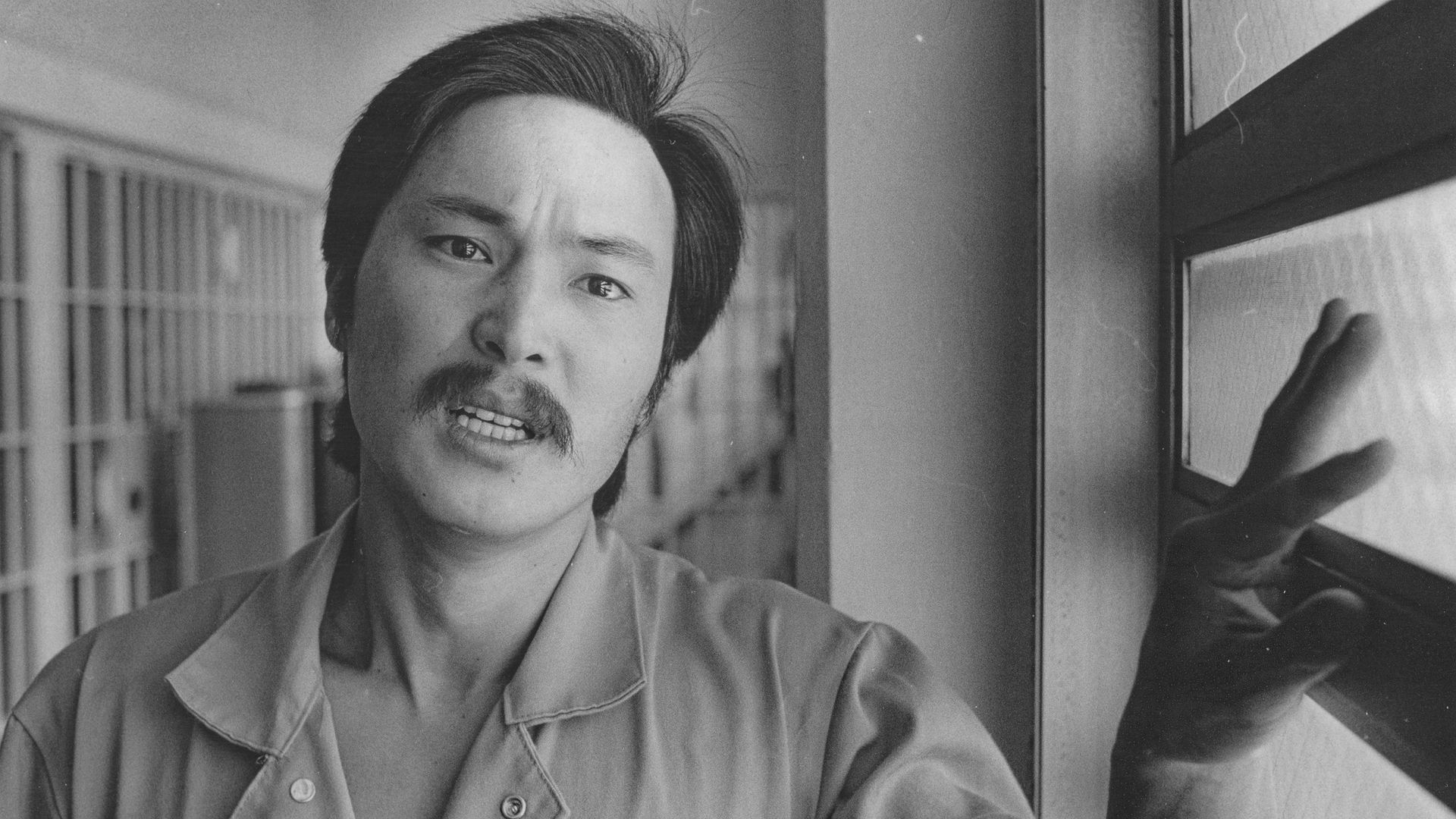
TV news crews surround Chol Soo Lee after he is released from prison on March 28, 1983. Photo: Grant Din/Free Chol Soo Lee/independent Lens
A new documentary examines a largely forgotten case of a Korean immigrant falsely convicted of murder in San Francisco's Chinatown and whose struggle sparked a 1970s pan-Asian American civil rights movement.
Why it matters: The story of Chol Soo Lee comes as surveys and studies show Americans know almost nothing about Asian American history, factors that advocates believe led to anti-Asian hate.
- PBS Independent Lens film Free Chol Soo Lee is part of a growing number of recent documentaries diving into overlooked episodes of Asian American history.
Details: The South Korean-born Lee was arrested in 1973 for the murder of a Chinese American man during heightened gang tensions in the city's Chinatown.
- Witnesses described the shooter as a Chinese man, but Lee was fingered for the crime even though he was Korean.
- Lee had been arrested for firing a gun inside his apartment. The weapon was different from the one used in the murder, advocates would later say. Yet it was enough for prosecutors to charge him amid pressure.
The intrigue: On a tip, investigative reporter K. W. Lee from The Sacramento Union embarked on a six-month investigation into Lee's case in June 1977, posing questions about his innocence.
- The stories became known as the "Alice in Chinatown Murder Case" and generated interest among growing, politically active Asian Americans on college campuses.
- Asian American college students and elder Korean immigrants began to hold regular protests around Lee, much like Native Americans would for Leonard Peltier and Chicanos for Ramsey Muñiz — also in prison.
Between the lines: The Lee case led to pressure in San Francisco to change policing and adopt reforms for Asian Americans.
Filmmakers Julie Ha and Eugene Yi tell Axios it was essential for them to viewers into the climate Asian Americans faced in the 1970s and how the criminal justice system discriminated against them like other people of color.
- "I think we were hoping that people could try to connect the dots between what's happening now against Asian Americans and what happened in the past with Chol Soo Lee," Ha told Axios.
- Yi said they wanted to ensure the film showed archival footage, including old interviews with Lee, to let Asian Americans tell the story. Many community members saved clippings and photos.
- "There was this almost unspoken understanding that this is something we all need to save and that the community needs to take this artifact of archiving into its own hands," Yi said.
Zoom out: The pioneering activism between college students and Asian immigrant elders produced a rare victory for Asian American activists as Lee was eventually freed in 1983.
Yes, but: The film shows how Lee continued to face troubles throughout his life following his case.
- Ha said that's part of systemic failures affecting Asian Americans that are glossed over because of the "model minority myth."
Of note: Free Chol Soo Lee is available online and on the PBS app through July 22.
"asian" - Google News
June 01, 2023 at 06:01AM
https://ift.tt/XGle5WS
How a 1974 criminal case drove pan-Asian American activism - Axios
"asian" - Google News
https://ift.tt/SiCjLwB
Shoes Man Tutorial
Pos News Update
Meme Update
Korean Entertainment News
Japan News Update

No comments:
Post a Comment